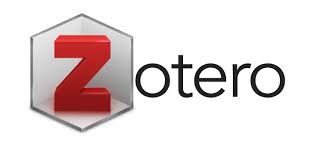| ADDITIONAL MENU |
| REVIEWERS |
| EDITORIAL TEAM |
| FOCUS AND SCOPE |
| PUBLICATION ETHICS |
| AUTHOR FEES |
| ONLINE SUBMISSIONS |
| PEER REVIEW PROCCESS |
| OPEN ACCESS POLICY |
| COPYRIGHT NOTICE |
| PUBLISHING SYSTEM |
| JOURNAL TEMPLATE |
|
REFERENCE TOOLS |
  |
| DIRECT CHAT |
 |
| INDEXED BY |
Publication Ethics of Journal of Marine and Estuarine Science (JMESc)
Journal is a peer-reviewed journal to publish articles in the field of marine and estuarine science. JMESc Journal committed to the ethical standards set for all entities involved in the publication of the article.
Responsibilities JMESc Journal Editor-in-Chief, Managing Editor, and Editor-in-Chief Editor
Financial obligations:
The editorial team of the JMESc Journal comprises an editor-in-chief, a managing editor, and an editorial board. Each member is expected to fulfill their roles with accountability and responsibility in publishing articles for the JMESc Journal. Led by the editor-in-chief, the editorial team has the following duties and responsibilities:
Justice:
The decision to publish an article is made through the peer-review process described above, with consideration based solely on the quality of the work. This decision is made impartially, without regard to the author’s religion, ethnicity, nationality, race, or gender.
Confidentiality:
The confidentiality of each article is strictly maintained prior to publication. JMESc Journal editors are prohibited from disclosing any information about an article to anyone other than the author. Information within an article may only be shared with other JMESc Journal editors with the approval of the Editor-in-Chief or Managing Editor.
Disclosure and Conflict of Interest:
Articles and any related materials that are not accepted for publication in the JMESc Journal must be returned to the authors and may not be used by the JMESc Journal editors for any purpose. To prevent conflicts of interest, all publication decisions are made impartially and based solely on the peer-review process.
Responsibilities of Reviewers
Contribution to Editorial Decisions:
Reviewer evaluations serve as the primary basis for the Editor-in-Chief’s editorial decisions. These evaluations are intended to assist the author in enhancing the quality of their article.
Appropriateness:
If a reviewer is assigned inappropriately—for example, if they lack expertise in the article’s subject area—any JMESc Journal editor may report this to the Editor-in-Chief or Managing Editor. The Editor-in-Chief or Managing Editor will then assign a more suitable reviewer, consulting with editors who have relevant expertise in the article's field.
Confidentiality:
Each article reviewed must be handled with strict confidentiality. The article and peer review results must not be shared directly with the author or communicated to anyone other than the author. All review materials should be submitted solely to the editor in charge, the Editor-in-Chief, or the Managing Editor.
Responsibilities of Authors
Reporting Standards:
Authors should clearly state the objective and significance of their research in the article and must adhere to the JMESc Journal guidelines when preparing their submission.
Originality:
Authors must submit original research that has not been previously published. To ensure originality, authors should check their article with a plagiarism checker before submission. Articles found to contain plagiarism will be rejected. All references used in the article must be accurately and honestly cited.
Multiple Submissions:
Authors are expected to submit their work solely to the JMESc Journal. If the article is not accepted after peer review and the decision is officially communicated by the Editor-in-Chief or Managing Editor, authors may then submit it to another journal. The article will be rejected if it is found to be plagiarized or submitted to multiple journals simultaneously.
Errors in Publication:
Before publication, authors will receive their article for final review to check for any errors. Authors should report any errors to the Editor-in-Chief or Managing Editor within the given timeframe, listing and addressing each error on a separate sheet along with evidence of revisions.
Responsibilities of Publisher
The Faculty of Marine Science and Fisheries at Syiah Kuala University, as the publisher of JMESc, promotes adherence to ethical standards and codes of conduct for all parties involved in the publication process. The publisher establishes formal contracts outlining the responsibilities between itself, editors, and other parties, respects privacy, protects intellectual property and copyright, and upholds editorial independence.
The publisher collaborates with journal editors to establish and uphold journal policies, with a focus on maintaining editorial independence, research ethics (including confidentiality, informed consent, and specific protocols for human and animal research), authorship standards, transparency, and integrity.
Additionally, the publisher works closely with journal editors to discuss and periodically review journal policies, taking responsibility for investigating suspected research and publication misconduct. Where possible, the publisher facilitates the resolution of such cases, ensures the timely publication of corrections, clarifications, and retractions, and publishes content according to schedule.
| ADDITIONAL MENU |
| REVIEWERS |
| EDITORIAL TEAM |
| FOCUS AND SCOPE |
| PUBLICATION ETHICS |
| AUTHOR FEES |
| ONLINE SUBMISSIONS |
| PEER REVIEW PROCCESS |
| OPEN ACCESS POLICY |
| COPYRIGHT NOTICE |
| PUBLISHING SYSTEM |
| JOURNAL TEMPLATE |
|
REFERENCE TOOLS |
  |
| DIRECT CHAT |
 |
| INDEXED BY |
